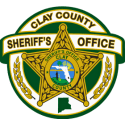Latest Law Enforcement Job Openings
Police Chief
Salary: $115,364.94 – $163,007.64 Annually Closing Date: 3/22/2026 Position Summary: The purpose of this classification is to manage, direct, and coordinate the activities of all…
Police Officer Recruit/Trainee
Salary: $7,280.00 Monthly Position Summary: The members of the Torrance Police Department are wholeheartedly committed to the goal of keeping our neighborhoods free from crime. From the…
Corrections Officer
Salary: $29.20/hr Essential Functions: Make periodic rounds, supervises the movement and activities of inmates and maintains jail security at an assigned post or cell tier;…
Police Officer
Salary: $88,924 – $96,180 per year. Position Summary: The Police Officer performs a variety of essential law enforcement duties to support patrol operations, criminal investigations,…
Police Officer
NOT CERTIFIED OFFICERS and LATERAL TRANSFER OFFICERS Not Certified Officers EVERY CERTIFIED OFFICER WAS ONCE “NOT CERTIFIED.”We remember. You don’t need experience. You need…
Police Officer
Salary: $51,500 annually, approximately ($24.75/hr) Position Summary: This position is responsible for providing law enforcement duties for the campus community. Responds to all emergencies and…
Police Chief
Salary: $230,000 annually Essential Functions: Key priorities include strengthening community trust, advancing data-informed policing, supporting workforce development and wellness, and aligning departmental operations with City…
Police Officer
Salary: $53,145.00 – $85,033.00 Annually Closing Date: 3/18/2026 Position Summary: The Police Officer responds to citizen calls for service, provides a police presence in the…
Lateral Transfer Police Officer
Closing Date: 4/30/2026 Position Summary: Works under the supervision of the unit Sergeants and Lieutenant. SUPERVISION EXERCISED: This position has no formal supervisory responsibilities. POSITION…
Police Detective
Salary: $72,359.00 – $91,557.00 Position Summary: The Detective plays a crucial role in the support operations of the Sterling Police Department, leveraging expertise in criminal…
Get the Inside Scoop on New Job Openings
Be the First to Apply!
Sign-up to get new Job Openings by Email
I want New Jobs
Probation Officer 1
Salary: $73,332 – $102,136 Annually Position Summary: The position allocated to this class performs investigative, counseling and case management duties for the Spokane County District…
Juvenile Corrections Officer
Salary: $64,643 – $90,069 Annually Position Summary: The position allocated to this class is an entry-level position responsible for the health and welfare, safety and…
Deputy Sheriff-Lateral
Salary: $95,660 – $139,137 Annually Position Summary: The Deputy Sheriff performs varied first-level law enforcement duties involving the protection of life and property, the enforcement…
Deputy Sheriff-Intermediate Lateral
Salary: $95,660 – $139,137 Annually Position Summary: The Deputy Sheriff performs varied first-level law enforcement duties involving the protection of life and property, the enforcement…
Deputy Sheriff-Entry Level
Salary: $74,734.40 – $108,700.80 Annually Position Summary: The Deputy Sheriff performs varied first-level law enforcement duties involving the protection of life and property, the enforcement…
Police Officer (Lateral/Pre-Trained)
Salary: $89,793.60 – $108,721.60 Annually Position Summary: The City of South Lake Tahoe is seeking dedicated, community-oriented individuals to join our Police Department as full-time…
Police Officer Trainee
Salary: $37.84-$37.84 Hourly Position Summary: The City of Simi Valley is seeking motivated and community‑minded individuals to join our team as Police Officer Trainees. This entry‑level…
Lateral Police Officer
Salary: $43.24-$56.01 Hourly Position Summary: Bring your experience, skills, and dedication to a department that values professionalism, integrity, and community partnership. As a Lateral Police Officer with…
9-1-1 Dispatcher Trainee
Salary: $26.51-$26.51 Hourly Position Summary: Join our Police Department as a 9-1-1 Dispatcher Trainee and become an essential part of the emergency response team! Make…
Police Officer
STARTING PAY: $68,481 PATROL TOP OUT PAY: $ 116,860 Applications will be accepted through Friday, April 3, 2026, at 11:59 pm. Testing for qualified…
Extra-Duty Program Administration
At no cost to your agency
Let Extra Duty Solutions help!
Find out more
Police Officer Recruit
Salary: $57,324.80 Annually Closing Date: 12/31/2026 Essential Functions: Monitoring traffic for possible civil or criminal violations; Prevention and discovery of the commission of crimes; Apprehension…
Police Officer
Salary: $79,892.80 – $98,779.20 Annually Position Summary: A Police Officer’s primary responsibility is to maintain peace, safety and order and to protect life and property…
Police Officer
Salary: $112,428.16 – $136,618.56 Annually Position Summary: Under general supervision, performs a wide variety of patrol and related duties involving the prevention of crime, the…
Police Officer Trainee
Salary: $89,843.00 Annually Position Summary: Police Officer Trainees learn to enforce Federal, State and local laws and to respond to calls for the protection of…
Deputy Sheriff Cadet
Salary: $112,184.80 Annually Position Summary: Under immediate supervision, attends a Law Enforcement Academy to obtain the required academic, technical, and physical skills necessary to perform…













